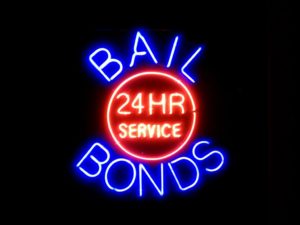Bail Bonds
Bail bonds are something that few people have to deal with on a regular basis. The laws and processes around securing a bond for a person in jail can be confusing for this reason. It is important to understand some of the details of the bail bond process.
The Purpose of Bail Bonds
The main purpose of a bond is to provide a financial reason for defendants to make court dates in the future after being released from jail. People who cannot secure a bond must usually remain in jail from the moment of the arrest up until the end of the criminal trial. This could potentially be several months or longer. Defendants who post a bond are released from jail since the money is considered insensitive to return when the trail starts. Bonds are usually posted through special agencies or bondsmen.
The Role of Bail Bondsmen

A bail bondsman is a licensed professional who is able to help defendants with the posting of a bond. These professionals are insured and have a standing agreement with the courts. A bondsman can perform a number of tasks from helping to complete legal paperwork to picking up a defendant from the jail. They can provide financing or other payment options when family and friends do not have enough money to cover the cost of a bond. Bondsmen generally handle everything dealing with the bond once hired. These individuals work through larger bail bond agencies in different jurisdictions.
Posting a Bond
Bonds can be posted by the defendant or by a friend or family member. Posting a bond usually requires contacting an agency or a specific bondsman. The amount of the bond must then be paid in some way. Bond agencies often accept cash or even credit cards. Exceptionally large bonds might require a person to supply a valuable asset as collateral to secure the full amount. The agency usually charges a small fee for the services provided.
Release from Jail
A defendant can be released from jail very quickly after a bond is paid. Some defendants are released within an hour of paying the bond. It could be longer if the jail is overcrowded or very busy. Defendants sometimes have to follow specific guidelines or restrictions after release. This often includes checking in with the bond agency regularly.
The Responsibilities of Co-Signers
If a friend or family member posts a bond for a defendant, then this person is called a co-signer. A co-signer becomes responsible for making sure the defendant shows up at every court date on time. Co-signers are also responsible for ensuring defendants follow all the rules given during release. If the defendant decides to flee or break the law, then the co-signer becomes financially responsible for the bond.
What Happens When Defendants Flee
Many things can happen if a defendant decides to flee and not show up for a court date. The judge at the trial will issue a bench warrant allowing the defendant to be arrested on sight. The bond agency could send out a bondsman to start tracking down the defendant in order to bring the person back to court. If the defendant does not return within a certain timeframe, then the bond is forfeited. This means the money and any collateral is lost.
Returning the Bond Amount
Bail bonds last for the duration of the criminal trial in many cases. The money used to secure the bond will be returned once the trial ends. It is returned regardless of the outcome of the trial. All of the money is returned less the fees charged by the bond agency.